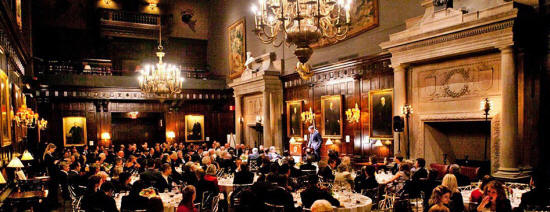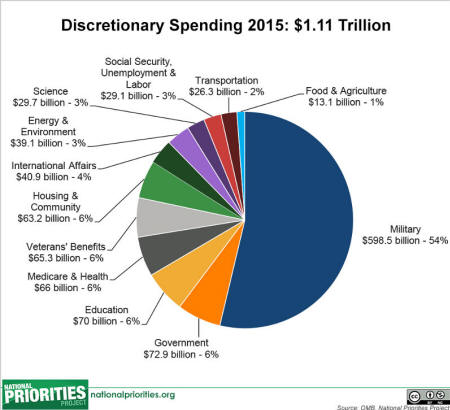|
from
Medium Website
The results of the Iowa caucus seem to me to be the death rattle for the establishment.
I outlined what I meant by "the establishment" back in August of 2014.
It has been my contention for the last few years that we are living in an Interregnum.
The Italian philosopher, Gramsci defined the concept well:
This sense of being trapped between a dying establishment and a new order that is not quite formed, plays itself out in four areas.
In our domestic politics we see a populist dead end battle as an older, whiter America invests its hopes in Donald Trump and Ted Cruz to stave off the multicultural state filled with immigrants and young people in which they are no longer the majority of citizens.
In the world of business we see the giants of the carbon economy (Exxon Mobil, Koch Industries, Peabody Coal) fighting to preserve their businesses in a world that must transition to a clean energy economy.
Similarly, the giants of Wall Street and Silicon Valley are fighting against real regulation of their businesses and serious taxation of their billions in capital gains.
And finally in the world of international affairs we see the forces of the military industrial congressional complex battling to keep an $800 billion military budget in order to preserve America's status as the sole hegemon, even as they realize that the future is a multipolar world.
Despite the seeming chaos of our current political campaign, where "the worst a full of passionate intensity", we have to see this as a transition, not a permanent condition.
The deep irony is that only a true dead-ender would be willing to gamble that 30 years from today we will live in a country,
In other words, we know the change is going to come. Its just a matter of how bitter the resistance is going to be.
That is why both the Trump and Cruz campaigns are so fascinating and why a historical perspective is important. In the early 1850's many in the Whig Party (the predecessor to the Republican Party) began to adopt a very nationalistic stance.
They believed that the waves of catholic immigrants flowing into America from Ireland, Germany and Italy were a huge threat and that they all were under control of a foreign sovereign: The Pope.
They eventually split off from the Whigs and formed the Native American Party (known also as the Know Nothings).
Abraham Lincoln was clear in the threat he saw posed by the Know Notthings.
But ultimately the Know Nothings failed, because America rejected nativism.
But today, in a post Citizen's United World, there are huge amounts of money being spent by the American Plutocracy (see Jane Mayer's Book on The Koch Brothers, Dark Money), to preserve the dying world.
They cynically use nativism to appeal to the working class because they might not be as sympathetic to their real interests in maintaining the economic status quo in the finance, oil and military businesses.
But there is a Democratic Party establishment as well, that is equally protective of the needs of Wall Street and the Military industrial Complex. And that is why the virtual tie in the Democratic caucus seems so important.
It seems to me that Bernie Sanders' message is rather simple. We must reallocate how we spend the people's money.
Look at this chart of our discretionary budget:
Even this chart does not account for an additional $150 billion in war spending in the middle east.
I think what Sanders is trying to do is to get us to imagine a country that no longer has to spend close to a $1 trillion a year on defense and instead reallocates some of that money on Medicare for all and free college tuition for the needy. But this kind of bold vision is rejected by the Democratic establishment as being unrealistic.
They are saying that Sanders' Revolution is impossible and that incrementalism is the only hope for progressives.
Recently the nature of this revolution was examined by Paul Krugman.
But I think Krugman is wrong.
The forces of intolerance are not as strong as he believes. Think of the vocal opposition to the very idea of gay marriage five years ago. It is a tribute to our ability to adapt, that the battle between the opponents of gay marriage and a younger generation is no longer even part of the current bitter political campaign.
The old way died and the new attitude was born. We got through the interregnum quickly.
Krugman's use of the term "false consciousness" seems appropriate to me. In the 2012 Presidential election 93 million eligible Americans did not vote, according to the Center for the Study of the American Electorate.
Only the theory that ordinary citizens are unable to really understand how they are being manipulated by the plutocrats could account for this extraordinary passivity on the part of the American public.
Certainly Jane Mayer's book, Dark Money unmasks how the Koch Brothers much-touted criminal justice reform efforts were really just a PR boost aimed at protecting white collar criminals like themselves.
Only false consciousness could explain the large number of union members who are supporting Donald Trump.
In what was known as the Progressive Era, when Teddy Roosevelt and Woodrow Wilson were fighting the entrenched wealth of John D. Rockefeller and J.P. Morgan, the liberal essayist Walter Lippman bemoaned a public that,
What Sanders is trying to do is get beyond the cynicism of the Lippmans and the Krugmans and see the middle class for what it is.
R.R. Reno understands this.
So where does this leave us in the election of 2016.
My guess is that Trump will flame out in the next six weeks. For the Republican establishment, it is clear that folks like the Koch Brothers would be very happy with Ted Cruz or Marco Rubio.
Both are pledged to lower their taxes and fight any efforts to make climate change a priority. Both are fighting to be the super hawk.
On the Democratic side the interregnum calculation is more nuanced. Both Clinton and Sanders believe in the demographic shifts that will make America a true multi-culture. Both embrace the science of climate change and believe it is a key priority.
But it is in the other two elements that I worry about Clinton. She is no less a hawk than Rubio or Cruz. The possibility of radically rethinking why we spend almost 60% of our discretionary budget on the military will not happen on her watch. And then there is the matter of Wall Street.
There is nothing in the 25 year history of the Clintons that would lead me to believe they would really take on Goldman Sachs and Citigroup. Bill and Hillary can talk like populists, but they consistently come down on the side of the plutocrats.
So that leaves true reform progressives with Bernie Sanders. He is an imperfect leader, but sometimes you have to play the cards you are dealt.
It's clear the Clintons spent last year making sure that Elizabeth Warren or Deval Patrick did not run. They clearly didn't think that an obscure 74 year old democratic socialist from Vermont would be a real challenge. But he is.
It may be that 2016 is the last gasp of the establishment on both sides of the aisle and we will see a Clinton vs. Rubio election in November.
But it also could be that Sanders is right and,
Then if he could get Elizabeth Warren as his running mate perhaps we could get out of this Interregnum sooner rather than later.
|



